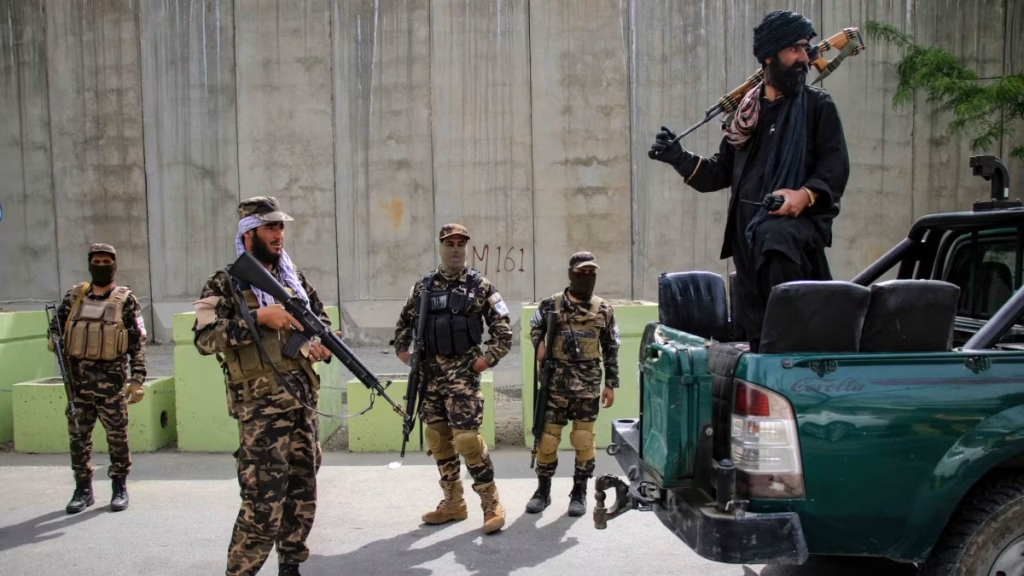Recent weeks have seen a sharp rise in Pak-Afghan tensions, leading to the deaths of dozens of civilians, including a Pakistani security officer. In response, Pakistan launched airstrikes in Afghanistan’s Paktia province, targeting hideouts of the Tehrik-i-Taliban Pakistan (TTP). However, the Afghan Taliban accused Pakistan of killing at least 46 civilians, including women and children, in these strikes. Pakistan maintained the strikes were retaliation for the TTP’s December 25 operation, where 16 Pakistani soldiers were martyred.
As the Taliban consolidated power in Afghanistan, conflicts on the Pak-Afghan border worsened. Separatist groups such as the Balochistan Liberation Army (BLA) and TTP mysteriously became part of these disputes. Analysts believe this is due to the Taliban’s poor grasp of international relations and power dynamics. Their failure to gain global recognition has left them isolated, even losing the support of Pakistan, their long-time ally. This has shown the Taliban’s capability to fight wars but highlighted their inability to govern.
The escalation of Pak-Afghan tensions coincided with an attack on the Taliban’s interior ministry in Kabul, which killed at least 10 fighters. The National Resistance Front (NRF) claimed responsibility, stating the attack demonstrated its military prowess against the Taliban. The NRF also revealed it had conducted over 360 operations this year in 20 Afghan provinces. Experts say this surge shows Ahmad Massoud’s resistance movement is nearing Kabul.
The situation has also exposed internal Taliban rifts. Recently, a suicide bombing in Kabul killed Khalil Haqqani, the acting minister for refugees and a key figure in the Haqqani network. This network, unlike the Kandahar group led by Mullah Hibatullah and Mullah Yaqoob, supports closer ties with Pakistan. The killing of such a senior figure has deepened divisions within the Taliban.
The Taliban have failed to control extremist groups like ISIS-K, TTP, and BLA, which threaten regional stability. The rise of ISIS-K, fueled by Taliban inaction, has led to devastating attacks, including bombings and shootings targeting minorities. Reports suggest ISIS-K is recruiting defectors from the Taliban, including members of their General Directorate of Intelligence. Another anti-Taliban group, the Afghanistan Freedom Front, has also launched attacks, further destabilizing the country.
The international community, including Pakistan, China, and India, continues to withhold recognition of the Taliban government. This reluctance is due to concerns over governance, women’s rights, and security. Instead of addressing these issues, the Taliban have worsened relations with Pakistan, which was once their key supporter. The TTP, ideologically linked to the Afghan Taliban, has carried out numerous attacks inside Pakistan. The rise in militant activities has forced Pakistan to reconsider its policies.
In the past year, the TTP and BLA have conducted over 1,500 attacks in Pakistan, killing hundreds, including law enforcement personnel. This highlights the Taliban’s failure to fulfill their state responsibilities. Pakistan, now facing heightened security threats, may continue airstrikes on Afghan soil and support resistance groups against the Taliban. Economic measures, such as blockading Afghanistan, could also be used to pressure the Taliban into compliance.
Pakistani military and government leaders, including Prime Minister Shehbaz Sharif, are devising strategies to handle the Taliban’s failures. As Pak-Afghan tensions escalate, Pakistan must safeguard its infrastructure and maintain regional stability, particularly in areas like Balochistan with Chinese investments. Without decisive action, South Asia could descend into a prolonged and devastating conflict.


